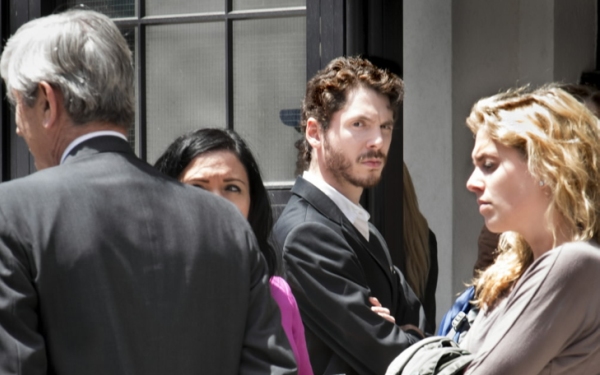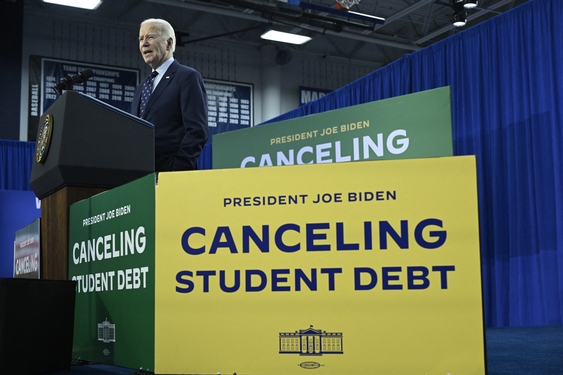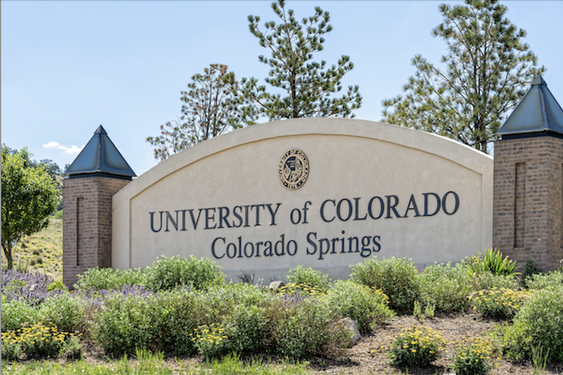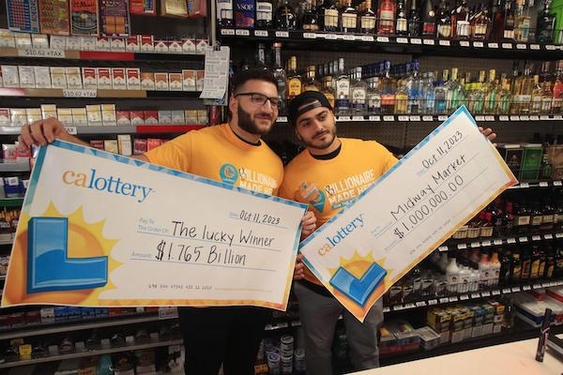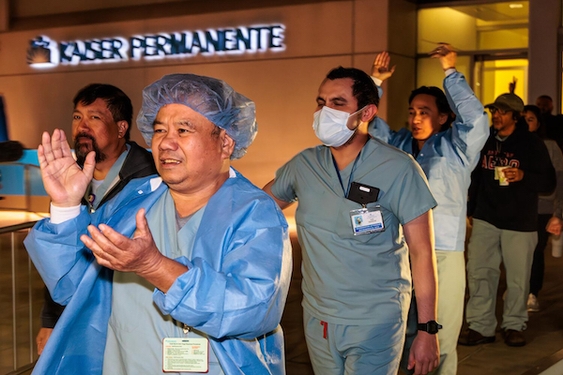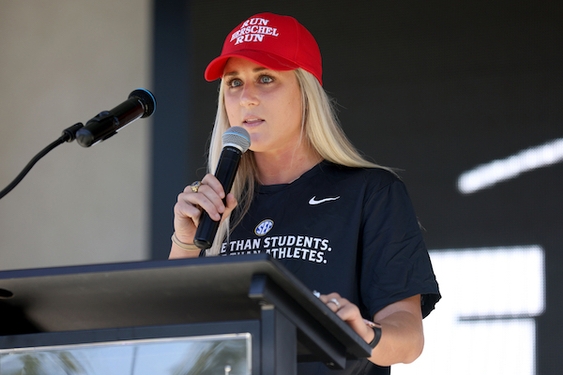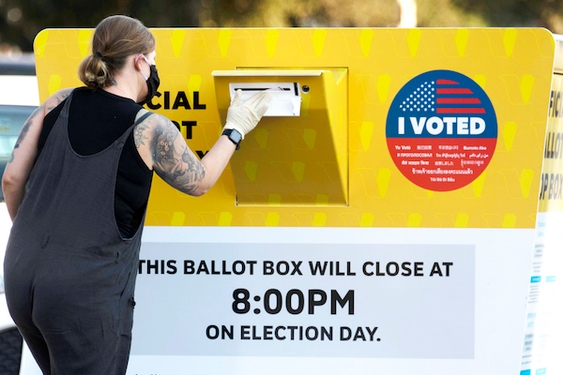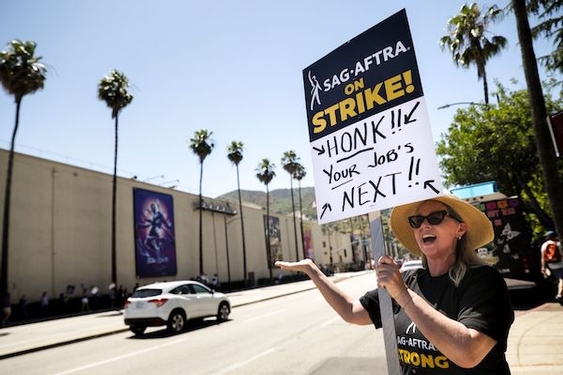NEW HAVEN, Conn. — Federal authorities charged two former Wesleyan University students Friday with selling the synthetic party drug Molly, which resulted in the hospitalization of at least a dozen students on two occasions during the 2014-15 school year.
A federal grand jury indicted Eric Lonergan, 22, of Rio de Janeiro, and Zachary Kramer, 21 of Bethesda, Md., on charges connected with sales of the drug on campus, said U.S. Attorney Deirdre M. Daly.
Daly said Lonergan and Kramer had been providing Molly to other students on the Wesleyan campus since at least 2013. She said Lonergan sold Molly from his dorm room most evenings, and that in early 2015 Kramer took over as the primary supplier to the Wesleyan campus.
Both men, who were expelled after their arrests, are accused of conspiracy to distribute and possess with intent to distribute MDMA and AB Fubinaca, the scientific names of the synthetic components of the so-called Molly they were selling, and one count of attempted distribution of MDMA and distribution of AB Fubinaca.
Each of the charges carries prison sentences of up to 20 years and a fine of up to $1 million.
In addition, the two are accused of selling MDMA within 1,000 feet of a private college, a crime that carries a mandatory minimum prison sentence of a year and a maximum sentence of up to 40 years. The charge also carries a fine of up to $2 million.
Both also face state charges along with three other former students, Rama Agha al-Nakib of Lutherville, Md., Abhimanyu Janamanchi of Rockville, Md., and Andrew Olson of Atascadero, Calif. All were expelled.
Kramer and Lonergan appeared before a federal magistrate Friday afternoon and were released on $250,000 bond each. They are scheduled to appear in Superior Court in Middletown in June and in federal court in Hartford in July.
The drug known alternately as Molly, MDMA and Ecstasy is a psychoactive with similarities to both the stimulant amphetamine and the hallucinogen mescaline, according to the National Institute on Drug Abuse. It produces feelings of increased energy, euphoria, emotional warmth and empathy toward others, and distortions in sensory and time perception.
“There is a perception, clearly a misperception, held by far too many people that synthetic drugs are harmless party drugs,” Daly said. “This perception is not only wrong but as the charges here make clear, very dangerous.”
In February, 11 individuals, including 10 Wesleyan students, were hospitalized after taking Molly. Federal authorities said Friday that in a previously unreported incident, several students were also hospitalized in September after taking a similar dose of Molly.
The drug was provided in capsules, and users either swallowed the capsule or opened it and snorted the powder inside.
“One student snorted only one-twentieth of a gram, yet in 10 minutes passed out,” Daly said. That student was ill for two days before being hospitalized.
Michael Ferguson, Drug Enforcement Administration special agent in charge for New England, said synthetic drugs can be deadly.
“One of the dangers of these synthetic drugs for the user is you just don’t know what you’re taking,” Ferguson said. “Unfortunately, Molly can be a name of a hundred different substances, so you really are playing Russian roulette.”
Officials said Friday that drugs confiscated during the investigation were tested in a laboratory, and did not contain MDMA but did contain AB Fubinaca, a synthetic cannabinoid commonly known as “Spice” or K2.
Ferguson said many synthetic drugs are manufactured in Asia then smuggled for distribution into the United States. He said there have been cases of Molly mixed with methamphetamine and “bath salts” — another designer drug.
He said traffickers try to stay ahead of laws banning substances by frequently changing the chemical makeup of the drugs.
Lonergan is accused in the indictment of beginning to buy and sell Molly to students in November 2013, usually in his dormitory room between 5 p.m. and 9 p.m. Authorities said Lonergan also provided customers with advice on how to use Molly, as well as other psychedelic drugs.
In 2014, when Wesleyan distributed a warning to students about the dangers of substances such as Molly, Lonergan answered by distributing a pamphlet of his own, instructing students on the use of psychedelic drugs, federal prosecutors said. At the same time, authorities said Kramer began buying Molly from Lonergan and redistributing it to his own customers.
In September 2014, according to federal prosecutors, Lonergan agreed to provide Molly to students who were planning a “rolling” party at Wesleyan, a party allegedly planned around use of the drug. Lonergan is accused of providing several grams of what he represented to be Molly to an individual who then distributed it to students in 0.1 gram capsules. Several students overdosed on Sept. 13 and required medical treatment.
The indictment charges that after the overdoses, Lonergan sent what are described as “electronic communications” to several of the students, claiming to have sold them safe drugs, which he had tried himself in advance. Federal prosecutors said Lonergan also sent some of the students a link to a digital video showing him performing a test which purported to show the substance he was selling was authentic Molly.
Three months later, federal prosecutors said, one of the students who had overdosed provided the Middletown Police Department with a capsule she claimed to have purchased from Lonergan the previous September. Laboratory analysis showed that the capsule did not contain MDMA, but rather AB Fubinaca, a synthetic cannabis-like substance and something called 6-MAPB, which is similar to MDMA.
By early 2015, the indictment says, Kramer had taken over for Lonergan as the primary supplier of Molly on campus. Molly distributed on campus by Kramer resulted in overdoses by another 11 people — 10 of them Wesleyan students, on Feb. 21. The students reported symptoms similar to those who had been medically treated in September and several required hospitalization. Two of the students were hospitalized in critical condition and one of them was medically revived after his heart stopped, federal prosecutors said.
Law enforcement laboratory tests on drugs responsible for the second set of overdoses again tested positive for AB Fubinaca.
Wesleyan put out a statement Friday that said it “remains deeply concerned about the events that occurred this past February as well as the broader problem of drug abuse. All of the students arrested in the February incident were promptly expelled from the University. The University has fully and comprehensively cooperated with local, State and Federal authorities at each step of their investigation and it will continue to do so.”
———
©2015 The Hartford Courant (Hartford, Conn.)
Visit The Hartford Courant (Hartford, Conn.) at courant.com
Distributed by Tribune Content Agency, LLC.


